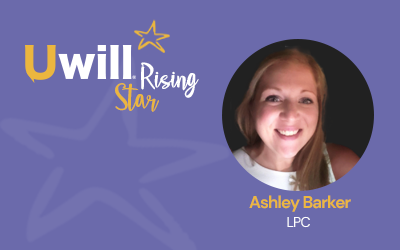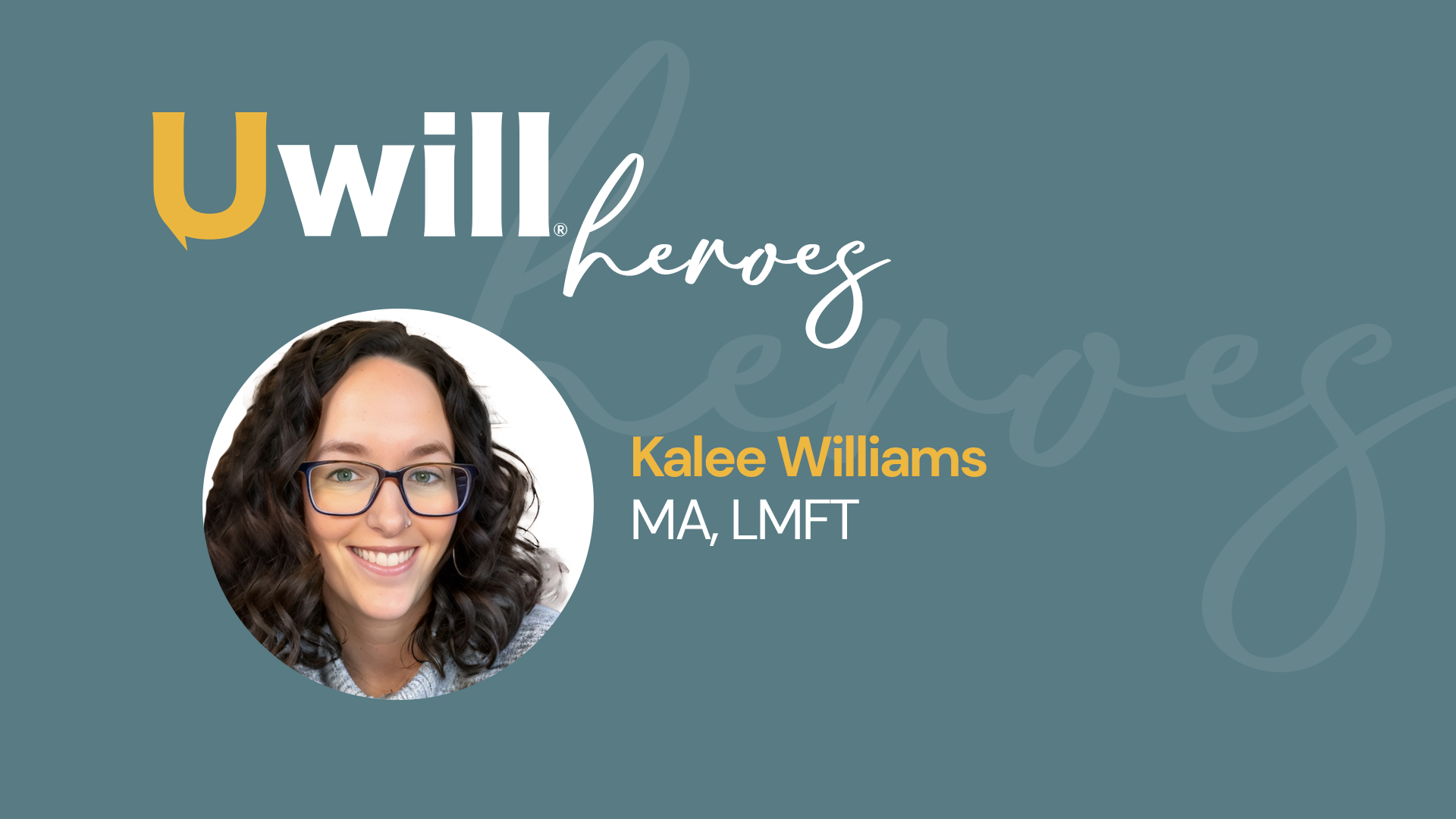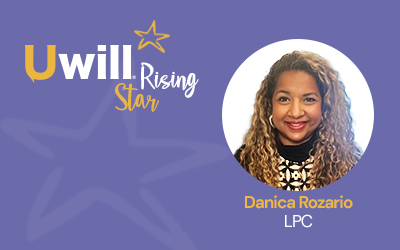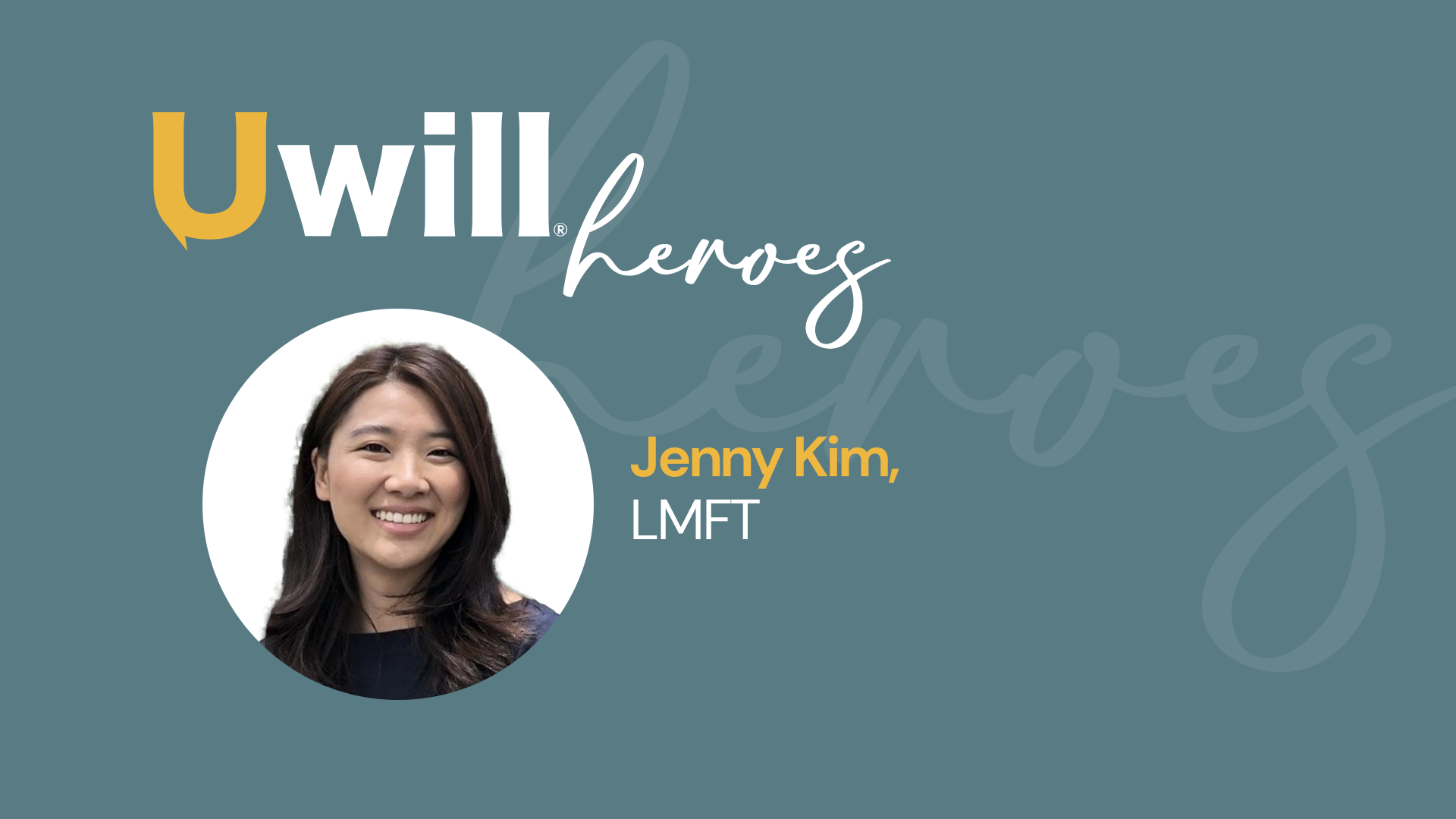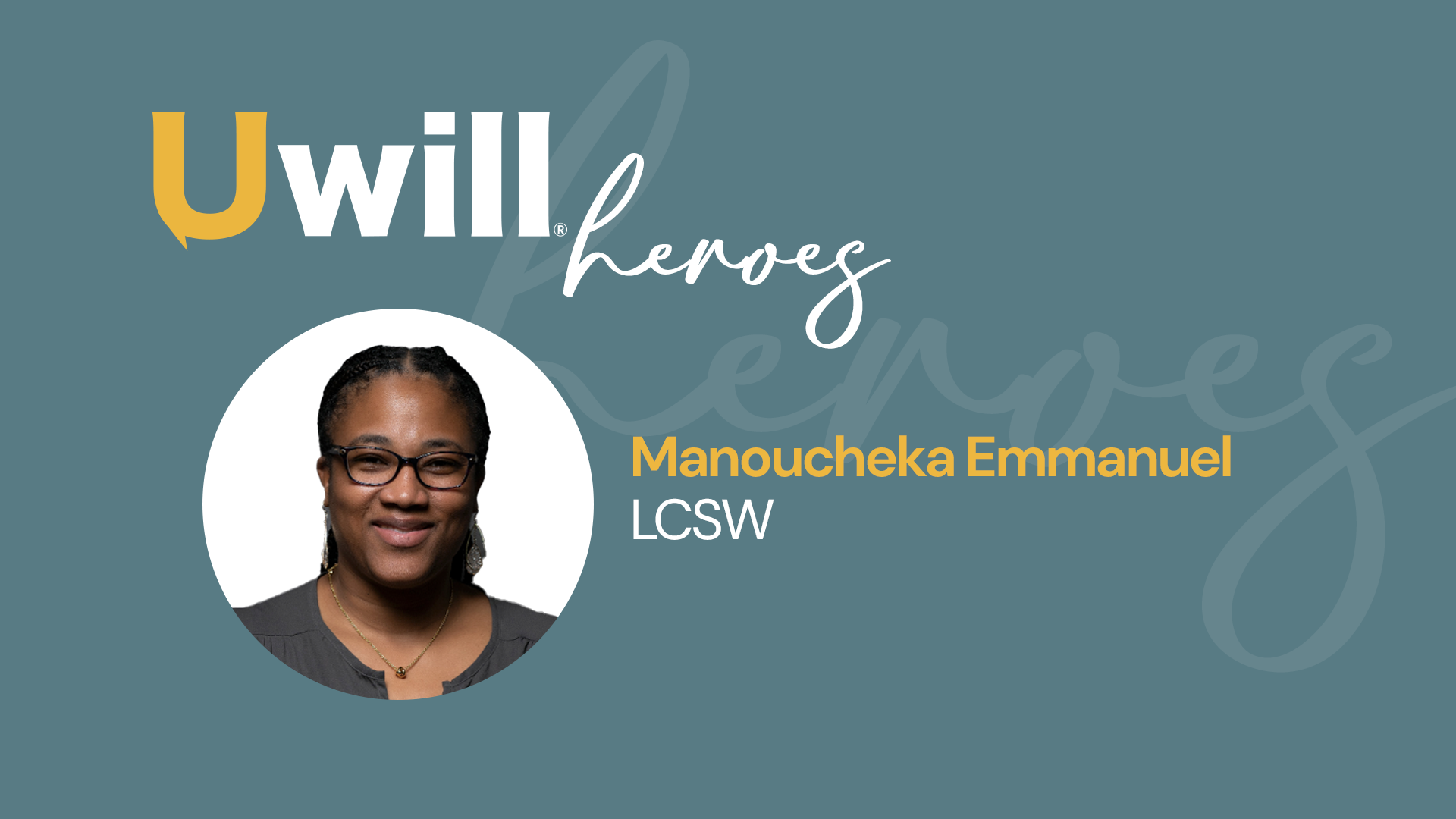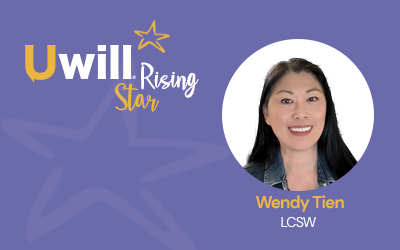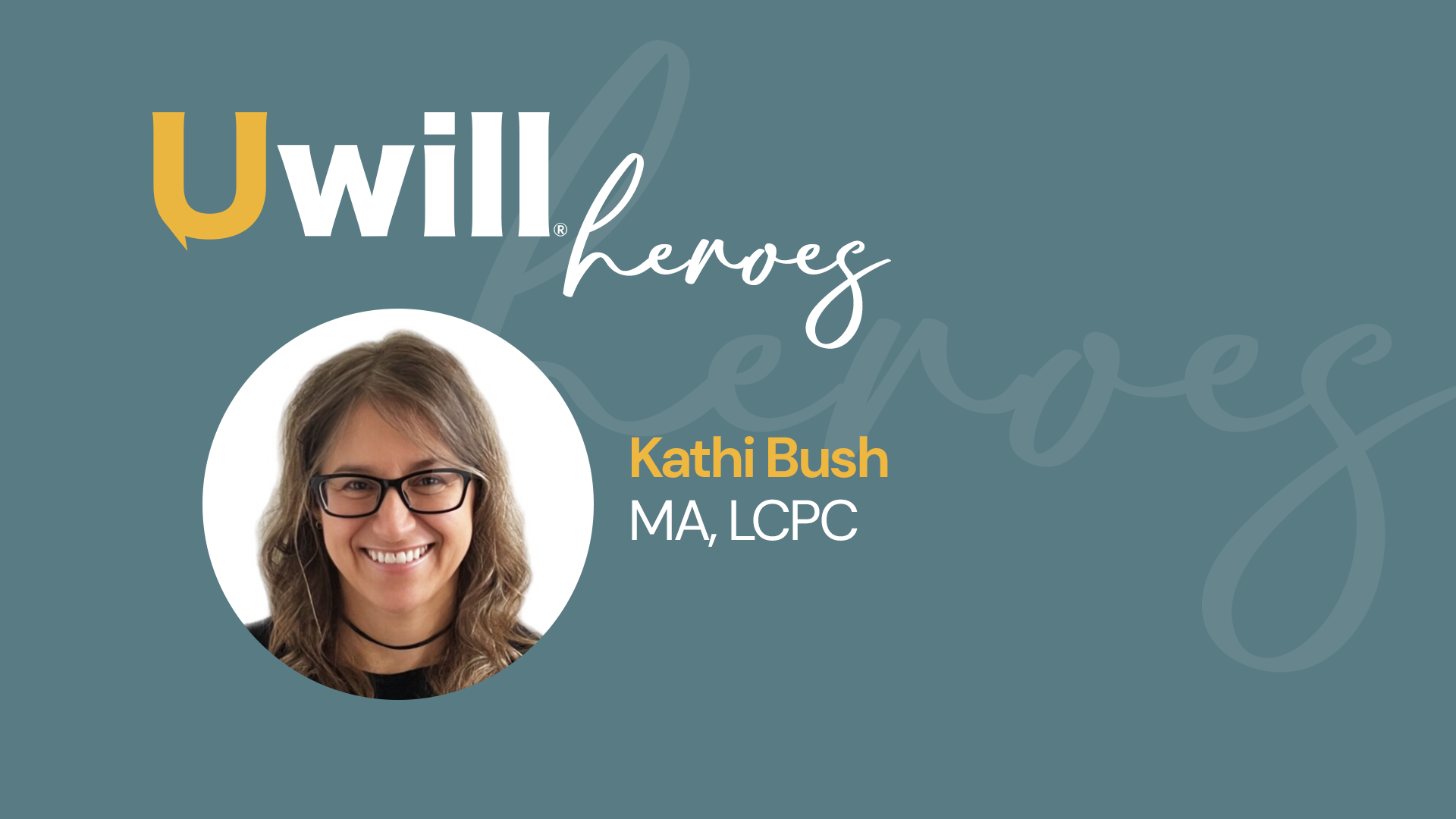
April Hero of the Month: Kathi Bush, MA, LCPC
Every month, we spotlight a counselor who has gone above and beyond for Uwill as our Uwill Hero of the Month. This month, we are delighted to recognize Kathi Bush, MA, LCPC as Uwill’s Monthly Hero.
Since joining the Uwill team in April 2024, Kathi has always gone above and beyond for Uwill. In that time, she’s had over 500 appointments, impacting the lives of students all across Illinois, all with a very high feedback rating.
Check out our interview with Kathi to read more about what excites her about working with Uwill, the creativity and variety of students she works with, and helpful tips for starting therapy for the first time.
What would you say excites you the most about working with Uwill?
Truly the mission of Uwill. The variety and flexibility is really important for me. I thrive with variety. So this is a good fit. Also, the limited amount of documentation is a relief that enables me to keep a good schedule. It’s accessible and it’s flexible for the students.
Could you illustrate the importance of a student being able to access a platform like Uwill?
Uwill removes barriers for students. It’s online. It makes it really accessible because students don’t have to commit to something like an in-person appointment every week. Because sometimes when that happens, they risk losing their spot if the same time, same day, every week doesn’t work. So Uwill really makes it accessible. I have a lot of students that are creative with how they have sessions with me. Sometimes I’ll work with commuter students who go to class and then go to their car, take a session with me in the car, and then head home. I have student teachers who will grab a session with me on their lunch break. So it makes it really doable to attend therapy because some of the barriers like scheduling and having to commute at a certain time. I also encourage my students to take advantage of the flexibility so that they can be consistent. If they typically want to see me or can see me on a Tuesday, for example, they have a big test they’re trying to cram for, then I encourage them to just pick whatever works. My schedule is always posted.
What aspect of your work would you say that you enjoy the most?
First of all: the variety. I love that I work with students of all ages and stages. So, in terms of their academic trajectory, I work with undergraduate students, I work with graduate students pursuing their masters or their doctorate. I’ve had some students who are grandmothers and going back to get their degree. And I have people who are parents trying to make this work or 20’s and 30-somethings who are working full time. And then, of course, I also have the traditional undergraduate students. The variety is life-giving to me personally. I love that in addition to the really vast array of presenting issues, whether it’s anxiety, depression, focus, academics, whatever the case is. I also have a lot of international students coming from a lot of different cultures and I love that they teach me. It’s such a delight to work with them. My students are so hard working and they are so brave. They come to the session with honesty, willingness to grow, they want to gain insight and learn. I do really feel like it’s an honor and privilege to work with them when someone comes to me with their vulnerabilities and is honest. I don’t take that lightly.
Would you recommend working with Uwill to a colleague?
Yes! It has been just so comforting that Uwill technical support is always available. Uwill clinical support is always available. I never feel alone. Help is always nearby and readily available. There’s no long response times. They always help me to feel like I’m never a bother. They always have a way to fix the issue. To me, they’re magical.They have ways to fix stuff. At the same time, I get opportunities to participate in a community. They always have ongoing events to participate in. The only thing I’d say would be for someone considering it is to make sure you’re at a developmental or even just a place in your life where it’s a good fit for you.
Do you have any advice for students who may be looking to try therapy for the first time?
First of all, I would say do it. I think it is really important to read the counselor bios to see who feels like a good match for you, If there’s an initial meeting and the student doesn’t feel like it’s a good match, they can change. I don’t recommend jumping from therapist to therapist but it’s okay if in the first meeting you don’t feel that it’s a good match.
And then if possible try to think ahead. What goals or hopes do they have for their time with their therapist and session? What do they want to increase or decrease? What do you want to see more of? Less of? Sometimes people don’t know. They just know that they want to increase insight, awareness, they want to learn, or they just need to process things they haven’t said out loud and they need somebody to hear and maybe help make sense out of things. And I really want to emphasize this: If you don’t know, that’s okay too. Students can come to the session and say “I have no clue. I feel like a mess and I don’t know what to do about it.” That’s okay! It’s my job as a therapist to help you figure that out. We can figure it out together.
The third point is it doesn’t have to be a long-term thing. Sometimes people come for a time and then step away for a number of reasons and then they might come back again and take another go at it. That’s okay too. There’s no rigid restrictions and rules to therapy.
The last, most important, point is that I want to reassure them that it’s normal to feel scared or anxious. Going to therapy, especially at that first meeting, is a vulnerable thing.You’re disclosing things to people. You don’t know them. They’re very personal to you. As therapists, we are always encouraged to get our own therapy and so a lot of us know what it’s like to be in that vulnerable position of going to a therapist and disclosing things to pretty much a stranger. It is normal to feel anxious and not know what to say. And that’s okay. We’ll figure it out together.
To learn more about becoming a counselor with Uwill, click on the link below.
Share this:
![]()
Uwill is a Teletherapy Educational Partner of NASPA
![]()
Uwill is the Exclusive Teletherapy Education Partner of the Online Learning Consortium
Resources

Copyright © 2025 Uwill | 1075 Worcester St, Natick, MA 01760 | 833-99-Uwill

